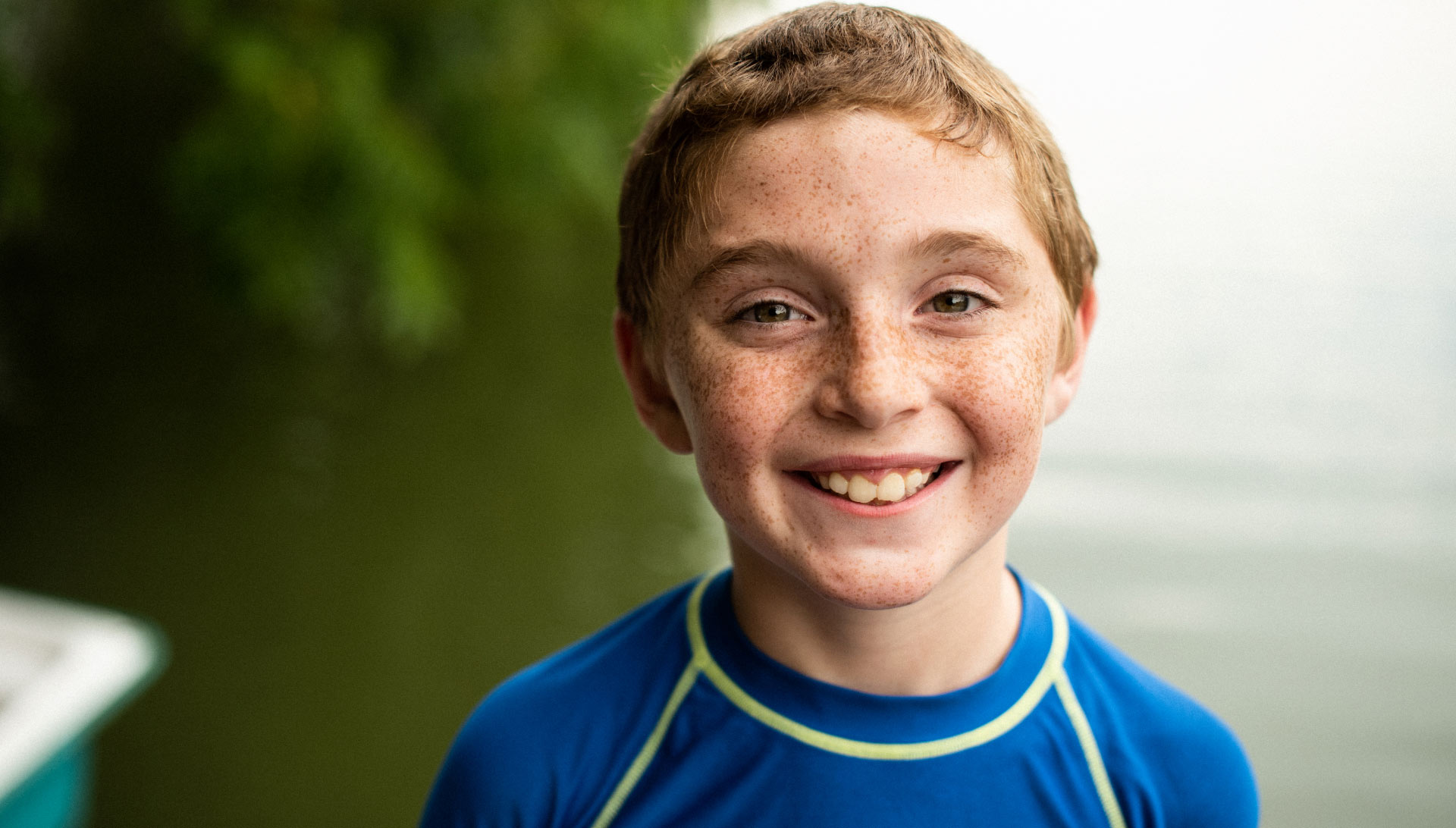
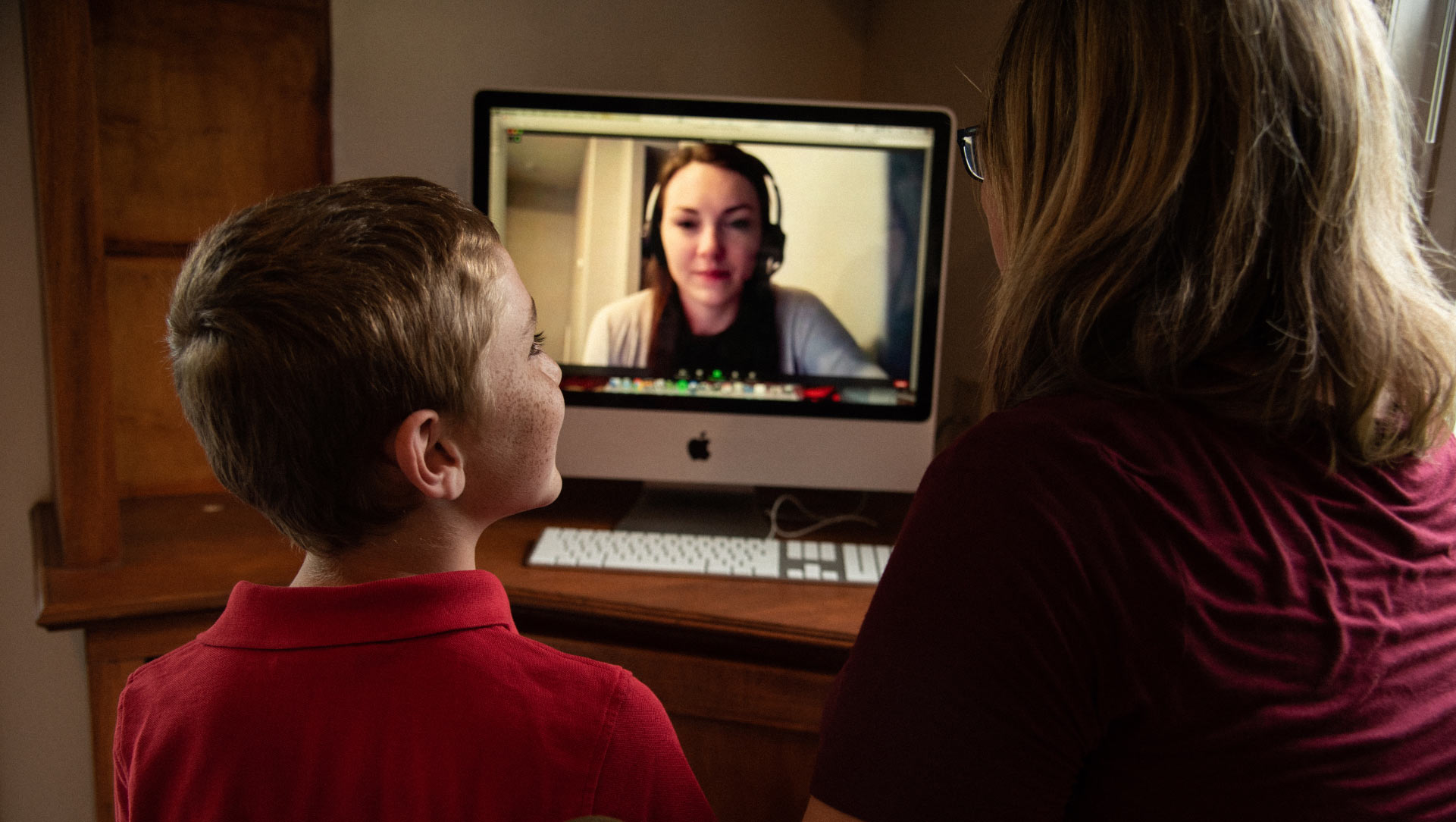
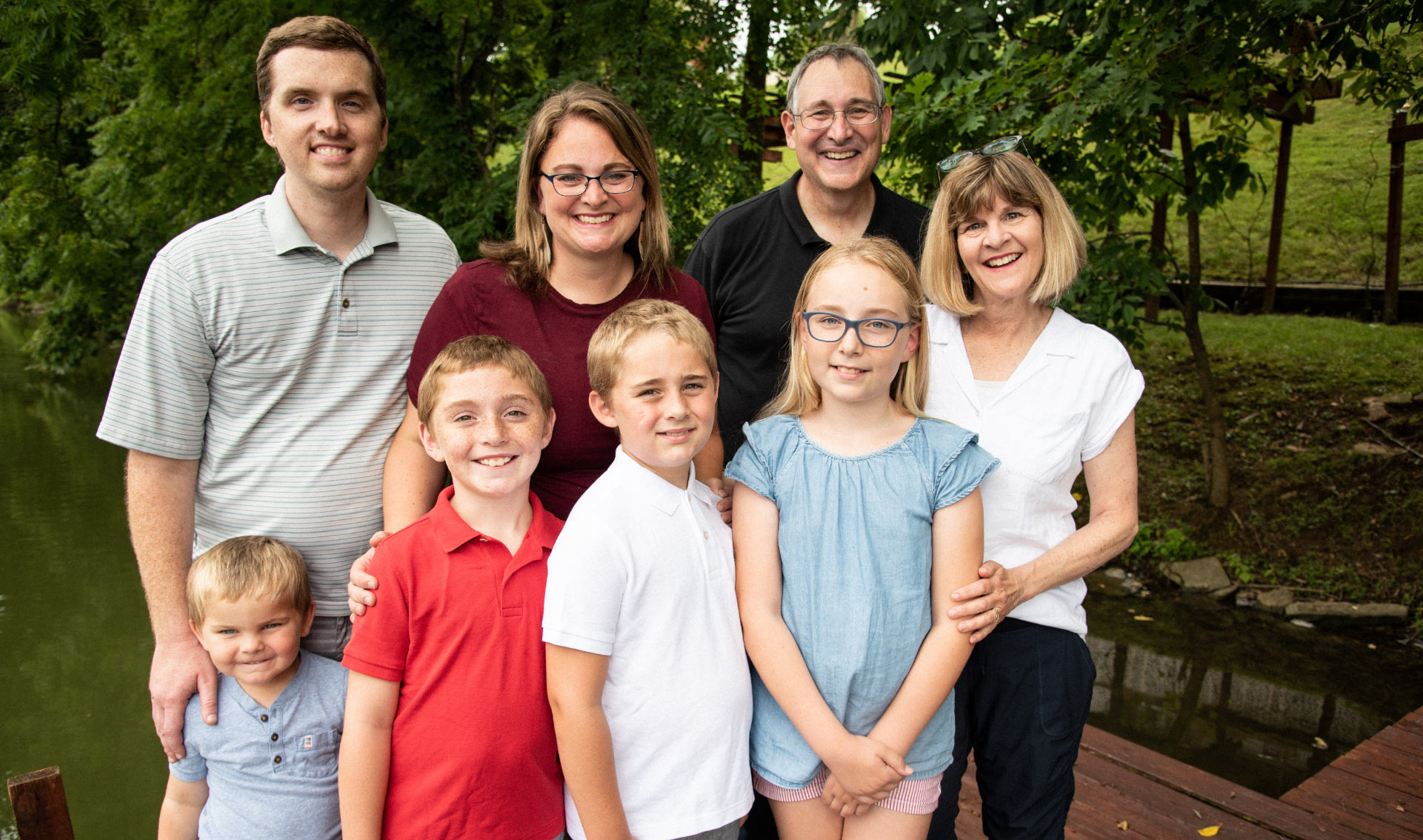


“He’s been really brave, really fast.”
Max Coyne was sick. And not the typical kind of sick—Amy Coyne’s funny, curious eight-year-old was listless, exhausted, and losing weight. Even stranger, his breath had a fruity smell to it. Max’s symptoms would be alarming regardless of when they occurred, but the timing, at the beginning of the COVID-19 pandemic in Kentucky, made Amy especially nervous. She called Max’s doctor, who told her to trust her instincts and bring Max in. A blood test and a urine test later, they had a suspected diagnosis of type 1 diabetes.
“His doctor said, ‘You need to go to UK HealthCare,’” said Amy. “He ended up being admitted to the pediatric ICU with DKA, diabetic ketoacidosis. He was there for 24 hours, and then we got his levels under control, and he was moved out of the PICU. We were able to have our initial meeting with the diabetes educators, and they said, ‘We think we may be doing TeleCare.’”
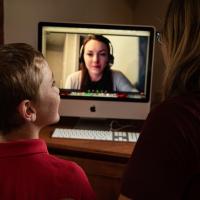


Normally, newly-diagnosed patients with diabetes meet with educators at the UK HealthCare Barnstable Brown Diabetes Center to learn about how to manage their condition. But during a global pandemic, the team shifted to a virtual model to help keep patients, families and staff safe. Amy, Max, and their family members were able to do Max’s diabetes education from their own home through UK TeleCare—a setup that offered more benefits than they’d imagined.





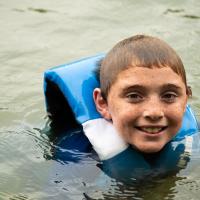
Armed with the knowledge they’d gained during their TeleCare sessions, the Coyne family felt confident enough to undertake a major adventure: driving across the country to visit Amy’s parents in Washington. Because of Max’s diabetes, the trip took a little extra preparation—but the Barnstable Brown Diabetes Center team was there to help.
Now that Max and his family are back home, he’s back to his usual routine, only slightly altered as he learns to live with diabetes. When he’s not reading, playing with his siblings, or swimming in the lake behind their house, he’s doing one of his favorite activities: making baked goods to share with friends and neighbors. Of course, he still gets to indulge in a brownie every now and then—as Amy reminds him, it’s about moderation. Life with diabetes has taken some getting used to, but Max and his family are making the best of it, and seeing the positives.





